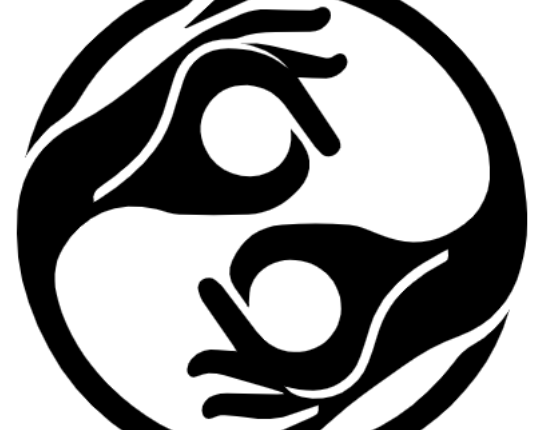Does the Universe Really Have Laws?
The age-old question, “Does the universe really have laws?” has captivated philosophers and scientists for centuries. In this exploration, we’ll delve into the nature of universal laws, examining their origins, influence, and whether they are truly fixed or merely our best interpretations of a complex reality.
Unraveling the Concept of Universal Laws
What exactly do we mean by “laws of the universe”? These aren’t legal decrees passed by some cosmic authority. Instead, they are descriptive principles that appear to govern the behavior of everything from subatomic particles to galaxies. They are observed regularities, formulated through rigorous scientific observation and experimentation. Think of gravity, for example. An apple falling from a tree isn’t breaking a law, but rather demonstrating the predictable influence of gravity, a fundamental force in the universe.
Are These Laws Fixed or Flexible?
This is where things get interesting. While some laws, like the laws of thermodynamics, seem immutable, others appear to have exceptions or evolve over cosmic timescales. Could it be that what we perceive as fixed laws are merely snapshots of a universe constantly in flux? Perhaps these “laws” are simply our best attempts to understand an infinitely complex system.
Different Perspectives on Universal Laws
- The Scientific View: Science emphasizes observation and experimentation. Laws are considered descriptions of observed phenomena, subject to revision as new evidence emerges.
- The Philosophical View: Philosophy delves into the nature of reality itself. Questions about the origin and necessity of universal laws are explored, often challenging scientific assumptions.
- The Spiritual View: Many spiritual traditions posit a cosmic order, often seen as divinely ordained. These viewpoints can intersect with scientific understanding, offering a broader context for the existence of universal laws.
Exploring the Implications of Universal Laws
If the universe does operate according to set principles, what does this mean for us? Does it imply determinism, where every action is predetermined? Or is there room for free will within this framework? These are profound questions that continue to be debated.
How Do We Discover These Laws?
The process of uncovering universal laws involves rigorous scientific inquiry. It’s a continuous cycle of observation, hypothesis formation, experimentation, and refinement. Scientists use powerful tools, like telescopes and particle accelerators, to probe the universe at both macroscopic and microscopic levels.
- Observation: Careful observation of natural phenomena is the first step.
- Hypothesis: A testable explanation is proposed.
- Experimentation: Experiments are designed to test the hypothesis.
- Refinement: Based on the results, the hypothesis is either supported or revised.
The Human Element in Understanding Universal Laws
It’s crucial to remember that our understanding of these laws is filtered through our human perception and interpretation. We are limited by our current technology and understanding. What we perceive as a fundamental law today might be seen as a mere approximation in the future.
“The universe is not only stranger than we imagine, it is stranger than we can imagine.” – Arthur Eddington, Astrophysicist
“The more I study science, the more I believe in God.” – Albert Einstein, Physicist
“We are a way for the cosmos to know itself.” – Carl Sagan, Astronomer
Could We Be Wrong About Universal Laws?
Absolutely. The history of science is filled with examples of theories being overturned by new discoveries. Newtonian physics, for instance, was revolutionized by Einstein’s theory of relativity. This highlights the dynamic nature of scientific understanding. Our current “laws” are simply the best models we have based on the available evidence.
Conclusion
So, does the universe really have laws? The answer, it seems, is both yes and no. While we observe consistent patterns that we describe as laws, our understanding of these patterns is constantly evolving. The quest to uncover the true nature of the universe and its governing principles remains a fascinating and ongoing journey. Continuing to explore this question will undoubtedly lead to further discoveries and deeper insights into the cosmos and our place within it.
FAQ
- Are universal laws the same as physical laws? Generally, yes, but the term “universal laws” can encompass broader philosophical and spiritual considerations.
- Can universal laws be broken? Not in the sense of violating them. However, they can be refined or superseded by more accurate models as our understanding improves.
- Do universal laws apply everywhere in the universe? This is a fundamental assumption in cosmology, but remains an area of active research.
- Who discovered the first universal law? It’s difficult to pinpoint the “first” law, but ancient civilizations made significant observations about celestial movements and natural phenomena.
- Why is it important to study universal laws? Understanding these laws helps us comprehend the universe and our place within it, enabling technological advancements and deeper philosophical insights.
- Are there any exceptions to universal laws? Apparent exceptions often drive scientific progress, leading to more refined and comprehensive theories.
- What is the relationship between universal laws and chaos theory? Chaos theory explores how seemingly simple rules can lead to complex and unpredictable outcomes, adding another layer to our understanding of universal order.
© 2025, Tin Tâm Linh. ( Theo : www.tintamlinh.com )


